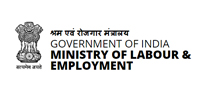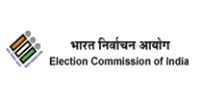Employees Provident Funds And Miscellaneous Provisions Act, 1952
The Employee's Provident Funds and Miscellaneous Provisions Act, 1952 applies to every factory engaged in any industry specified in Schedule - I of the Act and in which 20 or more persons are employed and to other establishments like road motor transport establishments, hotels, restaurant cinema theatres, hospitals etc. as notified by Central Government in the Official Gazette. The Act provides for the institution of compulsory Provident Fund, Pension Fund and Deposit Linked insurance Fund for the benefit of the employees in factories and other establishments The Act provides for three schemes viz.
- Employee's Provident Fund Scheme, 1952
- Employee's Pension Scheme, 1995
- Employee's Deposit Linked Insurance Scheme, 1976
Employees' Provident Fund Scheme, 1952
An employee who is in receipt of pay upto Rs.6500/-p.m. is eligible for membership of the Fund from the very date of joining an establishment. The present rate of contribution is 12 percent/10 percent of the monthly wages of the subscribers. The funds of the EPFO are invested as per the pattern of investment notified by the Govt. of India from time to time. Upto 31.3.1995, the Reserve Bank of India was managing the investment portfolio for the EPFO. From 1.4.1995, the State Bank of India has been appointed the portfolio manager. The investment decisions are taken with maximum emphasis on safety & security of the fund, optimum return, sound commercial judgement and ensuring that funds don't remain idle. The rate of interest on EPF accumulations is decided every year keeping in view the projected income and the interest liability of the EPFO for that financial year.
Employee's Pension Scheme, 1995
Although Provident Fund was an effective social protection measure for old age and survivorship benefit, in the event of premature death of an employee, the accumulations in the P.F was not found to be sufficient to render adequate and long term protection to his family. This led to the introduction of employee's Family Scheme, 1971 with effect from 1.3.1971. Under this scheme, family members, of the employees who died in harness, were given monthly family pension. A portion of the contribution to provident fund of the employee and the employer, namely, 1-1/6 % of wages was diverted to this fund and central government also contributed 1-1/6% of the wages. The benefit under this scheme was immensely improved with introduction of Employee's Pension Scheme, 1995 with effect from 16.11.1995, which was conceived as 'Benefit-defined-social-insurance-scheme' formulated on the basis of actuarial principles. This scheme aims at providing economic sustenance during old age and survivorship coverage to the member and his family. This scheme is funded by diverting 8.33% of the wages of the employees out of the employer's contributions to the Provident Fund. The Central Government continues to contribute at the rate of 1-1/6% of the wages of the employees. The benefits under the old scheme remained protected and continued in the EPS, 1995.
Employee's Deposit Linked Insurance Scheme, 1976
The third scheme, namely Employee's Deposit Linked Insurance Scheme, 1976 came into force with effect from 1.8.1976. The scheme is supported by a nominal contribution by the employers i.e.0.5% of the pay of the employee. No contribution is payable by the employee. On the death of a member while in service, the person entitled to receive the provident fund accumulation is paid and additional amount equal to the average balance in the provident fund account of the deceased during the preceding 12 months. At the inception of the scheme, maximum amount of benefit payable was Rs.10,000/-. This benefit has been progressively enhanced to Rs.25,000/- with effect from 1.3.1990, to Rs.35,000/- with effect from 1.4.1993 and to Rs.60,000/- from 24.6.2000, subject to certain conditions. Complaints received from workers over settlement of EPF dues are forwarded to the EPF Office for speedy redressal. The Labour Commissionerate also co-ordinates with the EPF Office to ensure that the Public Sector Undertakings who should be model employers are voluntary discharging their dues to the workers and EPF Organisation. A Regional Committee of Employee's Provident Fund has been constituted for the Union Territory of Pondicherry with Secretary (Labour) as Chairman so as to tender advice on all matters connected with the administration of the EPF Scheme.














